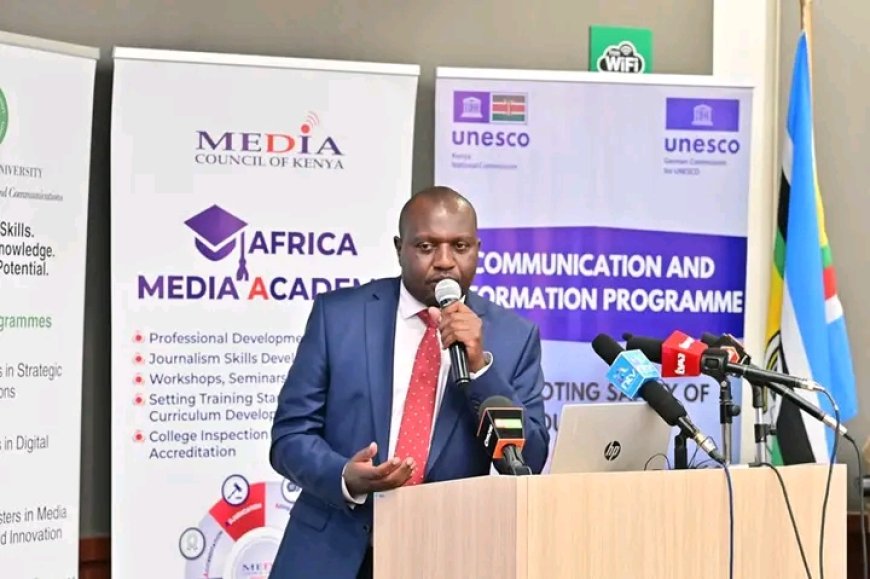Radio is the Indispensable Voice in the Fight against Climate Change

Aga Khan University, Nairobi
Thursday, 13 February, 2025
By David Omwoyo (MCK CEO)
The changing climate is undeniable. Erratic rainy seasons, dwindling rivers, and increasingly intense heatwaves are impacting our farms, water resources and daily lives. In this climate of uncertainty, radio remains a reliable source of information.
For decades, radio has been our companion, informing us and connecting us to the world. It’s a lifeline, especially during crises. When floods threaten, drought looms, or storms strike, radio is often the first to deliver critical information. Unlike social media, which can be rife with misinformation, or television, which depends on electricity and infrastructure, radio is accessible anywhere, anytime.
Across Africa, communities rely on radio for essential updates. Farmers tune in for weather forecasts to guide planting decisions. Fishermen listen for warnings about dangerous waters. Families in disaster-prone areas depend on radio for life-saving alerts about disease outbreaks and severe weather. In crises, from locust invasions to flash floods, radio provides real-time, trusted information that saves lives.
Beyond reporting on disasters, radio tells the stories of individuals grappling with climate change. It amplifies the voices of a pastoralist in Turkana adapting to harsher droughts, a young innovator in Nairobi developing solar solutions, and a conservationist working to protect forests.
These narratives personalise climate change, making it relatable to our lives, families and futures. Despite its crucial role, radio faces numerous challenges. Many community stations serving vulnerable populations are struggling due to funding constraints. Rising operational costs, from licensing fees to transmission expenses, make it difficult for independent and community-owned stations to survive.
Climate journalists also face obstacles. Many lack training to translate complex climate science into accessible language. Others work in under-resourced newsrooms where environmental reporting isn’t prioritised. Without well-trained journalists and financially stable stations, radio’s ability to inform and protect communities is jeopardised.
While digital platforms are expanding, radio is not obsolete; it’s evolving. Stations are embracing online platforms, launching podcasts, and utilising mobile apps to reach younger audiences. Interactive talk shows and call-in segments allow listeners to share experiences, ask questions, and learn from experts. Radio is also being integrated with SMS alerts, enabling people to receive weather warnings directly on their phones while still relying on radio for in-depth analysis.
Governments and private partners must recognise radio’s value and provide support through policies and investment. Training programmes for journalists covering climate issues are essential. Funding mechanisms should be established to support community radio stations. Partnerships with scientific institutions should be fostered. As the world discusses climate change, we must ask: are we leveraging every available tool to inform and protect our communities? Radio must be central to this conversation.
On World Radio Day, we celebrate the vital role radio plays in our lives and in shaping our planet’s future. In the context of climate change, what people hear can inspire action. Radio remains a powerful and essential voice.
-The writer is the CEO of the Media Council of Kenya. ceo@mediacouncil.or.ke
What's Your Reaction?


































































































































































































































































































